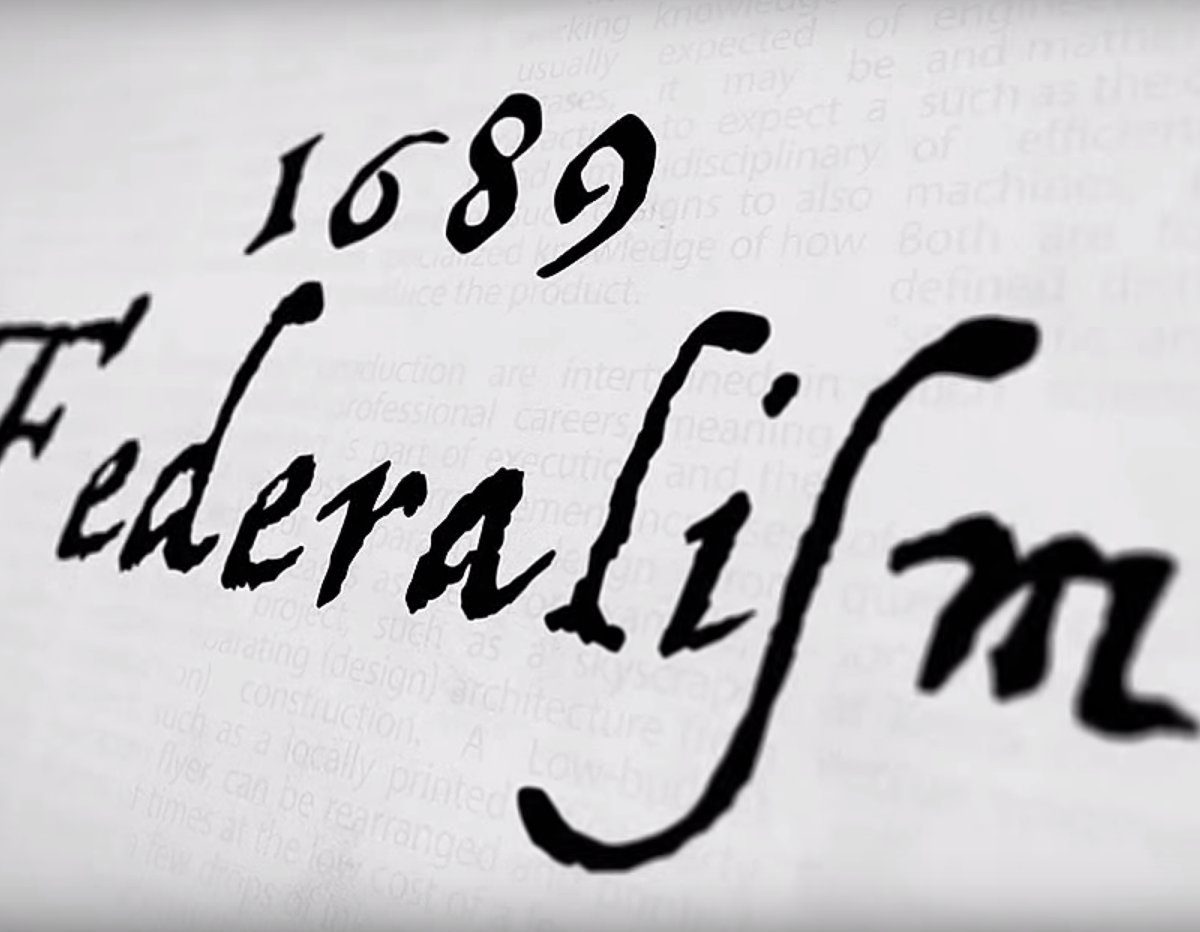Lately, someone pointed to me a Reformed Baptist Conference, which was held in Cubao Philippines. One of the speakers, Pastor Noel Espinosa, brought a lecture criticizing 1689 Federalism. Pastor Espinosa holds to a Baptist view very similar to the one covenant, two administrations understanding (he calls it a one covenant progressively revealed). Though we can certainly agree to disagree; we do need to agree on what we disagree. There were several points he mentioned which I don’t think represent accurately what 1689 Federalism is. I humbly want to bring three brief clarifications.
1. The Covenant of Grace is the New Covenant
Espinosa’s critique of our position starts after 20 minutes into his lecture. He begins by quoting me saying: “No covenant preceding the New Covenant was the covenant of grace.” Amen to that! I still agree with myself (and with the Confession, and Coxe, and Owen, etc. 😉 😛 ). My issue with Pastor Espinosa is the way he interprets that claim in the rest of his presentation. He takes it as if I meant that there was no manifestation of the Covenant of Grace prior to the establishment of the New Covenant. Anyone who read my book carefully knows that this is absolutely not what I am saying.
The implication of Covenant of Grace = New Covenant is not that there is no grace before the New Covenant, but that all grace that was manifested after the fall was provided by the New Covenant (before and after it was established). To me, this is explicitly what Heb. 9:15 teaches: everyone that was called to receive the eternal inheritance since the fall, received it in virtue of Christ’s New Covenant mediation. Therefore, the New Covenant was active even before the blood was shed. It was first active as a promise, then as a covenant. Here’s John Owen, on this crucial distinction: “It had before the confirmation of promise, which is an oath; it had now the confirmation of a covenant, which is blood.” But in both cases, the inheritance is the same: eternal salvation by grace alone, through faith alone and from the New Covenant alone.
2. The Old Covenant was a typological republication of the Covenant of Works
My second issue with Espinosa’s presentation is that, while he rejects the doctrine of republication, he implies that 1689 federalists see the Old Covenant as an absolute covenant of works rather than a typological one. Pastor Espinosa declares that it makes no sense to see the Mosaic Covenant as a covenant of works since it would have been transgressed the minute it was made because of the fallen state of man. He doesn’t take into account the typological nature of the republication we argue for and he suggests a view which we do not hold. Maybe, as a corrective, I can simply cite what I wrote in the foreword to the revised edition of my book concerning this essential distinction:
I have rejected the idea that the Mosaic Covenant offered eternal life as an absolute republication of the Covenant of Works. I came to the understanding that the Mosaic Covenant was strictly limited to life in Canaan and was only typologically tied to the heavenly realities brought by the New Covenant. I had previously endorsed Samuel Petto’s view that understands the Mosaic Covenant both as an earthly covenant of works for Israel in Canaan and an absolute covenant of works for Christ to obtain eternal life. I still believe the former (Israel), but I now believe that the latter (Christ) is only typologically true. In other words, Christ didn’t accomplish the Old Covenant but the New Covenant which was set forth as a covenant of works between him and the Father (the Covenant of Redemption), the terms of which were prefigured but not properly stipulated in the Old Covenant.
The main issue, in my opinion, was that I used to blend the type with the antitype or the shadow with the reality in the same covenant by attributing eternal life as a promise proper to the Mosaic Covenant. I believe that this mixed approach to covenant theology is the essence of paedobaptism with its internal/external distinction that blends earthly kingdom with heavenly kingdom, Old Covenant with New Covenant, etc. 1689 Federalism, on the other hand, relies on the fundamental distinctions between Old and New, type and antitype, shadow and reality and, therefore, distinguishes between the Mosaic typological republication and Christ’s established New Covenant: typologically related, but essentially distinct.
Even if he only read the first edition of my book, I never said that the Mosaic Covenant was an absolute republication of the Covenant of Works (I knew even then that this was impossible). I just thought that it was so for Christ…
3. 1689 Federalism safeguards the law-gospel distinction
Finally, the fact that Pastor Espinosa sees the Old Covenant as grace and gospel while we see it as works and law, leads him to declare that 1689 Federalism forfeits the gospel by reintroducing the law into it when it calls law-covenant a “grace-covenant”. I actually believe the exact contrary: calling the Old Covenant a grace-covenant is confusing the law and the gospel. In my view, it is the Westminster Federalism that tends to blur the law-gospel distinction by blurring the Old Covenant-New Covenant distinction.
On that issue, most of the Particular Baptists and John Owen agreed with the Lutherans who saw the Old Covenant as representing the law and therefore not to be confused with the Covenant of Grace. John Owen wrote:
If reconciliation and salvation by Christ were to be obtained not only under the old covenant, but by virtue of it, then it must be the same for substance with the new. But this is not so; for no reconciliation with God nor salvation could be obtained by virtue of the old covenant, or the administration of it, as our apostle disputes at large, though all believers were reconciled, justified, and saved, by virtue of the promise, while they were under the covenant[1].
Of course many things would need to be said regarding how the Reformed articulated the law-gospel distinction into their one covenant, two administrations federalism. For one thing, they are very far from a consensus on that question. But what I want to argue is that generally the gospel is compromised not when the Old and the New are distinguished, but when they are assimilated. It subtlety starts with the relativization of the doctrine of justification by grace through faith without the works of the law which begins to be called antinomian because it supposedly leads to easy believism. Then evangelical obedience is slowly displaced from evidence of faith to essence of faith. The free imputation of Christ’s righteousness is replaced by Christ’s work into a person to make him righteous and you end up earning eternal life not just on the basis of what Christ did for you, but on the basis of what Christ is doing in you. Progressively, by small steps, the leaven of the Pharisees and the Pelagians was introduced into the gospel. This happens when we don’t have a clear and fundamental distinction between the Covenant of Grace and the Covenant of Works (and their related historico-biblical covenants). Here I am not accusing Pastor Espinosa of legalism; I just ascertain that the different forms of Christian legalism are often based on a one covenant structure that merges the law and the gospel together.
1689 Federalism does not dispute the third use of the law and the necessity of evangelical obedience as a proof of a living faith. However, we strongly deny a wrong use of the law by which a sinner, even a regenerated one, could possibly live (Gal. 3:21-22). The righteous shall live by faith. Period! (Rom. 1:17; Gal. 3:11-12).
Conclusion
I believe that Pastor Espinosa was sincere in his attempt to criticize our covenant theology. But I do not believe that he has grasped the implications of the major claims he criticized. I hope that he and those who disagree with our view will reconsider those claims. I appreciate his expressed desire of maintaining brotherly love and respect and I certainly share this commitment. I do believe that we can hold unity among Reformed Baptists in spite of some disagreement regarding the covenants, but first we need to identify correctly what these disagreements are. This is why I felt the necessity to write this blog post.
[1] Hebrews, Exposition of 8:6
Première publication le 28 juin 2018 @ 16 h 46 min





Thank you Pascal. Hopefully this will start a conversation with our brother so that the various misunderstandings can be resolved.
Thanks Brandon. Pastor Robert Truelove also did a Facebook live response where he explains some differences between 1689 Federalism and 20th Century Reformed Baptist Covenant Theology: https://www.facebook.com/robert.truelove/videos/10211637607041923/